By David Sadler — Today, an official Lebanese delegation is heading to the border area of Naqoura, to deliver the American mediator, Amos Hochstein and the United Nations, a letter signed by President Michel Aoun, including approval of the demarcation of the southern border with Israel in its final form, while the demarcation of the […]
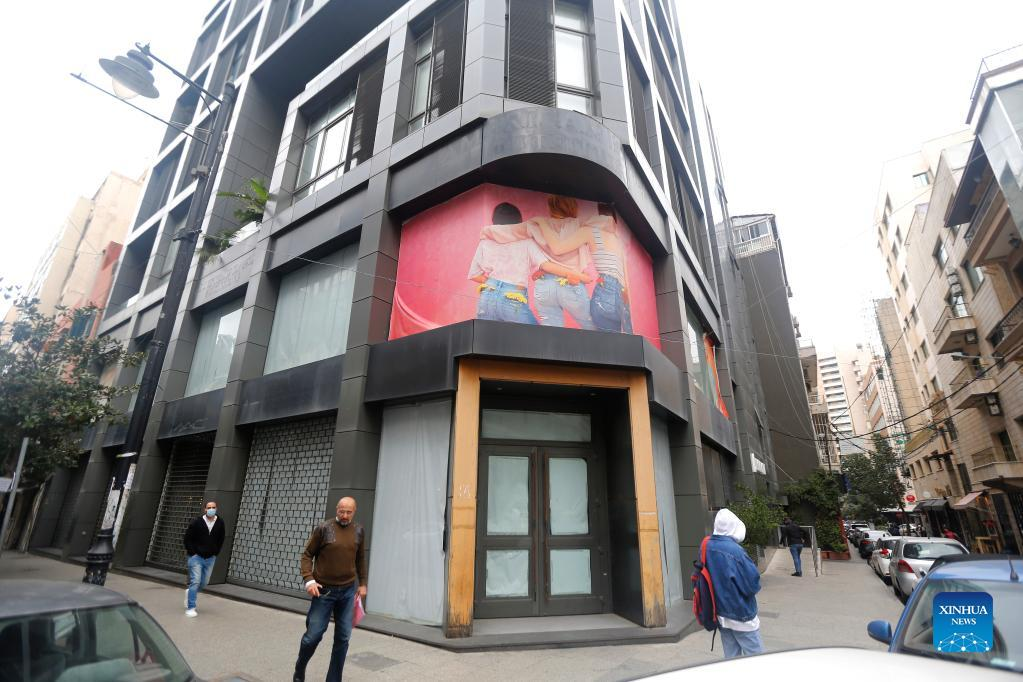
by business-standard.com — Zara owner Inditex has reached an agreement to sell its Russian business to a Lebanese retail and real estate conglomerate, the Spanish fashion giant said on Tuesday in a statement to the country’s competition authorities. The buyer is Daher Group and the potential purchase is pending approval from Russian authorities, Inditex said, without disclosing financial details.
Inditex halted its business in Russia on March 5, shortly after Russian President Vladimir Putin ordered the invasion of Ukraine at the end of February. Following other western brands, the fashion retailer closed its 502 shops and stopped online sales. Tuesday’s announcement marks the end of Inditex’s business in Russia, although the retailer said it would consider returning through a franchise collaboration with Daher if market circumstances changed. The statement to CNMC, the commission that oversees competition in Spain, made no direct reference to the war in Ukraine. The sale agreement includes the transfer of most of the lease contracts of its existing stores, which Inditex says will enable the preservation of a substantial number of jobs generated by the group. Founded in 1975 by Amancio Ortega, Inditex’ rapid success hinged on the ability to serve new fashion collections in record time. It currently operates several brands globally, including Massimo Dutti, Bershka, Pull & Bear and Oysho.
About Daher Group
The Lebanese Daher family have become billionaires by opening 55 fashion and lifestyle brands in 14 countries in the Middle East and North Africa. The Daher brothers — Wassim, Said, and Hasan — own Azadea Group, a Beirut-based company that own and manage 600 retail outlets, including Max Mara, Sunglass Hut, Massimo Dutti, and Zara, among others. Azadea’s largest collection of stores are in mega malls in the United Arab Emirates, which is the company’s most profitable country, according to a former Azadea senior executive. The company employs 11,000 people and the brothers are estimated to have a fortune of at least $1.4 billion, according to the Bloomberg Billionaires Index. Wassim Daher founded the company in 1978 as a multi-brand clothing store in Hamra Beirut. His brother Hasan and Said later joined the company as managing director and chief executive, respectively.
by naharnet — The Syrian government on Monday apologized for not being able to receive Wednesday a Lebanese delegation that was supposed to discuss the issue of sea border demarcation between the two countries, an official Lebanese source said. The Syrian government said the apology is related to “previously-scheduled appointments,” Al-Jazeera TV quoted the source […]
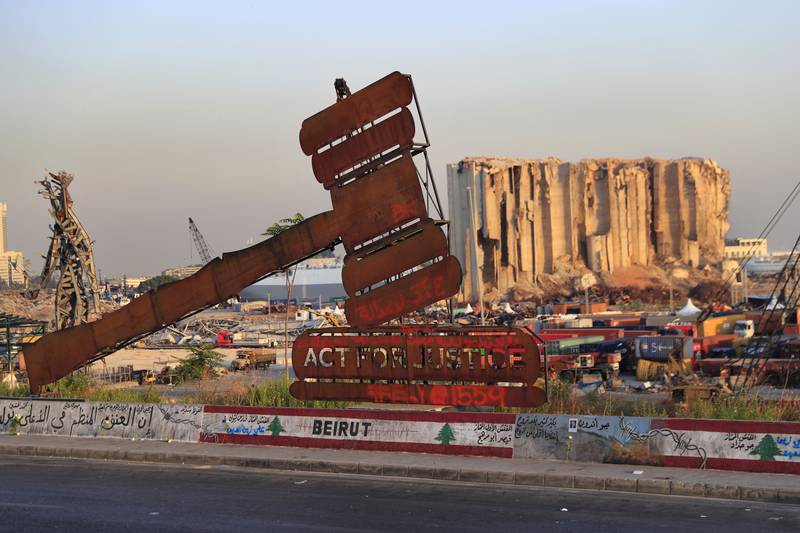
by english.alaraby.co.uk — MENA — Lebanon’s parliament failed on Monday for a fourth time to elect a successor to President Michel Aoun, with lawmakers divided over a candidate opposed by the powerful Hezbollah movement. Already governed by a caretaker cabinet, crisis-hit Lebanon is hurtling towards an imminent power vacuum, with just days before the current president’s term finishes at the end of the month. Parliament speaker Nabih Berri called for another vote on Thursday in the hope of overcoming long-running arguments. A total of 50 lawmakers in Lebanon’s 128-seat parliament left their votes blank, many from Iran-backed Hezbollah and its allies. Their rivals mostly backed lawmaker Michel Moawad, whose father René Moawad was a former president. He has emerged as a frontrunner since parliament first met to name a president last month. But Moawad, who won 39 votes on Monday, was still was far short the 86 ballots – two-thirds of seats – needed to win.
University professor and activist Issam Khalife took 10 votes, cast by independent lawmakers who emerged from a mass 2019 anti-government protest movement, as well as others. But the required quorum was lost before a second round could be held, after some lawmakers walked out – a recurring scenario in past votes. Moawad’s supporters accused Hezbollah and its allies of obstructing a second round of voting to negotiate with other blocs, effectively preventing the election. “No bloc in parliament can impose a president, not Hezbollah nor anyone else,” said Elias Hankash, a lawmaker from the Kataeb Party that supports Moawad. Hankash accused lawmakers who left parliament of “systematic disruption”, because there were not enough lawmakers to make a vote legitimate.
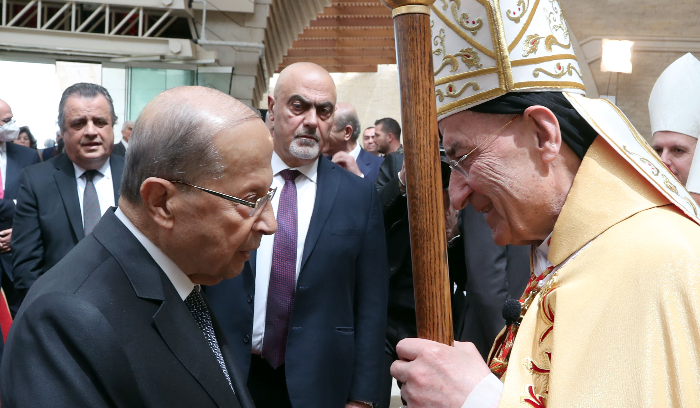
By Elias Turk Beirut, Lebanon – cna — – Lebanese President Michel Aoun this week called on French company Total Energy to begin exploring for natural gas after a major diplomatic breakthrough between Lebanon and Israel. The two countries recently announced a draft deal that could end a long-running dispute affecting the oil-rich maritime border between the two countries. For Lebanon’s president, a Christian, this was a rare bit of potentially good news in recent months, if not years. The ongoing turmoil and insecurity affecting the Christian community in an economically unraveling Lebanon is the consequence of long decades of political corruption, a constantly destabilized Middle Eastern country, and short-sighted governmental planning. Economic chaos followed the events of October 2019, when the Lebanese government imposed new taxes on tobacco, gasoline, and smartphone apps for making calls, including WhatsApp. This caused nationwide protests that eventually led to the government’s resignation — and made the nation’s liquidity crisis fully apparent.
The fragile Lebanese economy fell into hyperinflation. Then COVID-19 began spreading in the country in February 2020, deepening the crisis, and an explosion in Beirut’s port on Aug. 4, 2020, killed nearly 230 people and injured approximately 6,000 more, destroying tens of thousands of apartments. For the nation’s Christian community, these developments have added yet another layer of strain and anxiety to the constant existential threat they have been facing for decades in the Middle East. This month brought another reminder of the community’s vulnerable condition. The end of October marks the expiration of the Lebanese president’s six-year term. The presidency has been held by a Maronite Catholic since 1943. With no new candidate elected yet, a constitutional void at the level of presidency is expected from the first of November.
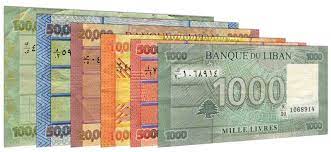
by asumetech.com — The Central Bank of Lebanon said today, Sunday, that it will stop buying dollars through its “exchange” platform, starting October 25, until further notice. The statement added that the bank will continue to sell dollars exclusively through its platform, according to Reuters. Bankers said the move aims to support the Lebanese pound after it traded to a new low of over £ 40,000 per dollar last week. The lira has lost more than 95 percent of its value since 2019, when it was valued at 1,500 before the country’s economic meltdown began.
The Lebanese financial crisis, which has lasted for three years, has pushed three quarters of the population into poverty, as food prices have risen more than 11 times, with the latest price hike in supermarkets in recent days. Having pegged the currency for decades, the Central Bank of Lebanon currently offers multiple exchange rates, including a flexible exchange rate. It is worth noting that Lebanese Finance Minister Youssef Al-Khalil said the state should not be “solely” responsible for paying depositors whose deposits have been frozen by the economic crisis.
NNA – President of the Republic, General Michel Aoun, met Deputy Speaker of Parliament Elias Bou Saab. The President awarded Deputy Speaker Bou Saab the National Order of the Cedar at the rank of Senior Officer, in appreciation of his patriotic contributions and the effective role he played in the course of the recent negotiations […]
english.alaraby.co.uk — Lebanese songstress Haifa Wehbe, who has previously courted controversy for performances deemed too sexy, will be performing in the Gulf kingdom for the first time next week. Haifa Wehbe is to perform in Saudi Arabia for the first time next week, alongside fellow Lebanese songstress Elissa. The two singers – among the most famous […]
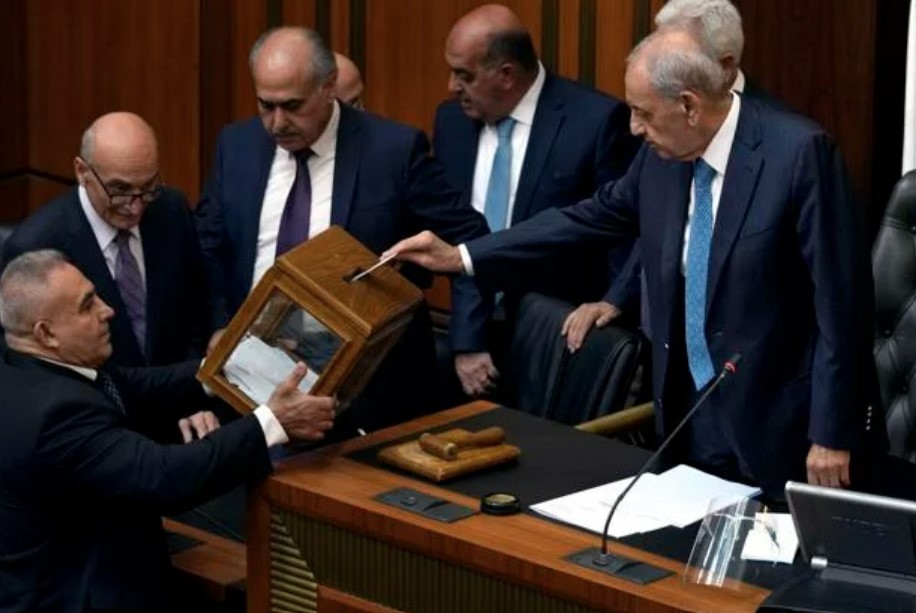
By Jamie Prentis — thenationalnews. — Lebanese politicians failed for a third time to elect the country’s next president on Thursday with no candidate receiving enough votes, only 11 days before the term of incumbent Michel Aoun ends. Parliamentary speaker Nabih Berri said the next election session in the 128-seat chamber would take place on Monday. In the first polling round, which took place in late September, a two-thirds majority was required to win. But an absolute majority is needed in subsequent votes. Of the 119 votes cast, 55 were blank and 17 for “New Lebanon”. MP Michel Moawad, who received the most votes in the first round with 36, increased his share to 42 — but that was nowhere near the threshold needed to be elected Lebanon’s next president. “It is clear that one camp comes to elect a president while another attends the sessions just to hide its desire to block them,” said Mr Moawad, a staunch critic of the Iran-backed armed group and political party Hezbollah.
Will the Lebanon-Israel maritime gas deal shore up Aoun’s legacy? Mr Moawad, whose father Rene served as president for 18 days in 1989 before being assassinated, described himself as the only “serious candidate”. He has received the support of parliament’s largest party, the Lebanese Forces, the Kataeb Party, the Druze Progressive Socialist Party and a handful of independent MPs. Among the big names not to back a candidate yet are Hezbollah, Mr Berri’s Amal Movement, and the Free Patriotic Movement, which was founded by Mr Aoun.
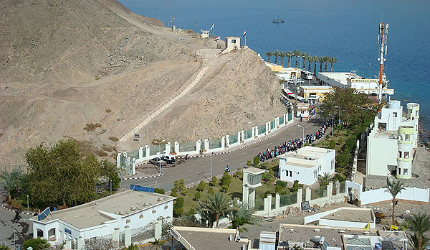
By Laila Bassam & Maya Gebailey — BEIRUT, (Reuters) -Before Lebanon’s government approved a U.S.-brokered deal settling a decades-long maritime boundary dispute with Israel, the powerful Hezbollah had scrutinized the final draft line by line and given a crucial nod of acceptance. Branded a terrorist group by Washington and a sworn enemy of Israel, the Iran-backed Hezbollah was certainly nowhere near the negotiating room during U.S. shuttle diplomacy which clinched the landmark deal last week. But behind the scenes, the heavily armed group was being briefed on the details and expressing its views even as it threatened military action were Lebanon’s interests not secured, according to sources familiar with Hezbollah’s thinking, a Lebanese official and a Western source familiar with the process.
An unprecedented compromise between the enemy states, the deal opens the way for offshore energy exploration and defuses one source of potential conflict between Israel and Hezbollah. Observers say the deal was all the more significant for the pragmatism shown by Hezbollah, pointing to the shifting priorities of a group set up four decades ago by Iran’s Revolutionary Guards to fight Israel. “The Hezbollah leadership scrutinized the understanding line by line before agreeing to it,” said one of the sources familiar with the group’s thinking.
After spending much of the last decade deploying fighters and military expertise across the Middle East to help Iran’s allies, notably President Bashar al-Assad of Syria, Hezbollah’s focus is today squarely on Lebanon – a country in deep crisis. More involved than ever in state affairs, Hezbollah has said offshore oil and gas are the only way for Lebanon to emerge from a devastating financial meltdown that has hit all Lebanese hard, including its large Shi’ite constituency. Though Hezbollah says it does not fear war with Israel, the group has also said it does not seek one with a formidable foe which staged major invasions of Lebanon in 1978 and 1982. Lebanon took years to rebuild from the last war in 2006 – much of the bill paid by Gulf Arabs who have since shunned Beirut because of Hezbollah’s sway. And while Tehran’s support remains strong, Western sanctions have squeezed the amount of cash Iran can send the group.



